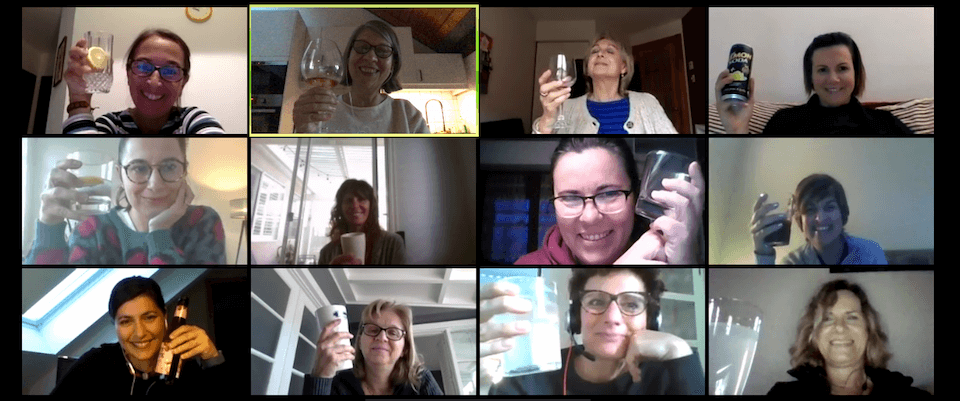How to maintain games in online training
With the new scenario designed by COVID-19, everyone is rushing to give advice on how to hold virtual training. But I would like to talk about the challenge of maintaining games in online training.
I practice Linguistic Empathy and I expect you to do the same. Please bear with me if my English is not perfect.
Games have always been a constant in my life. I’ve always used them, and still do, on every occasion: parties, meetings with friends, birthdays, workshops, intercultural training, coaching … Even when I train managers arriving in new countries, I put them in front of one or more games. At this time when training and seminars can only be held online, the real challenge is how to maintain games in online training.
 A challenge that is particularly close to my heart
A challenge that is particularly close to my heart
Just when the COVID-19 crisis broke out, I was getting ready to launch my coaching game What Expats Can Do. I had worked on it for months, with passion and determination. I had reflected, brainstormed and tested the possibility of one-day training on diversity using only this game as a tool. Still, the basic assumption of the game is to be physically seated next to each other. Quarantine forces us to review all the activities we used before. And possibly, to transfer them online.
It is true that by now we have become very good at doing a lot of things online. It is still clear, however, that the energy, commonality, and fullness that games provide are impossible to recreate through a screen.
Or not?
I wanted to try. I intended to offer the Expatclic community the same workshop on the expat family I had given in Bucharest. And since the use of interactive activities had been fundamental on that occasion, I had to find a way to include them online. I thought about it a bit and realized that I could do it.
And if I had managed to create an online version of the activities I had brought to the workshop, I told myself that I could do the same with many other games. I therefore compiled a list of games that I have always used in my intercultural training workshops, and in training with managers and their families. I analyzed them thoroughly to find out if there was any chance to to adapt them to the virtual realm. When I found it, I modified them enough to have them played online, and in doing so I got a lot of other ideas on how to use games in online training.
Zoom
Then I studied Zoom, the software I often use with the Expatclic community, and asked the ladies if I could use them to test it. Once I fully understood its potential, I had more inspiration, and I created new games on a solid basis.
It was a very creative and exciting process.
Those were the days when my mother, in Italy, fought like a lioness against COVID-19. To distract myself, I would start thinking about my games. I developed them, corrected them and invented new ones. Until I got a long list of games. So long that I divided it into various categories:
- icebreakers
- games to introduce yourself in a group
- games for intercultural training
- coaching games to talk about values
- team building
- games to talk about diversity & inclusion
- training activities to create a portable career
Now I am testing them with the Expatclic community and with groups of colleagues who have always followed me in my dreams and projects. I am learning a lot in this process. I’m finding out what it is important to focus on and what you shouldn’t worry about. I will share this, and other useful tricks to profitably use games in online training, in my next post.
I am also planning to offer webinars for online games: we’ll play from the beginning to the end and I will explain how to get organized for your interactive activities online. Write me if you want to be the first to know the dates and other details.
Never stop playing!



